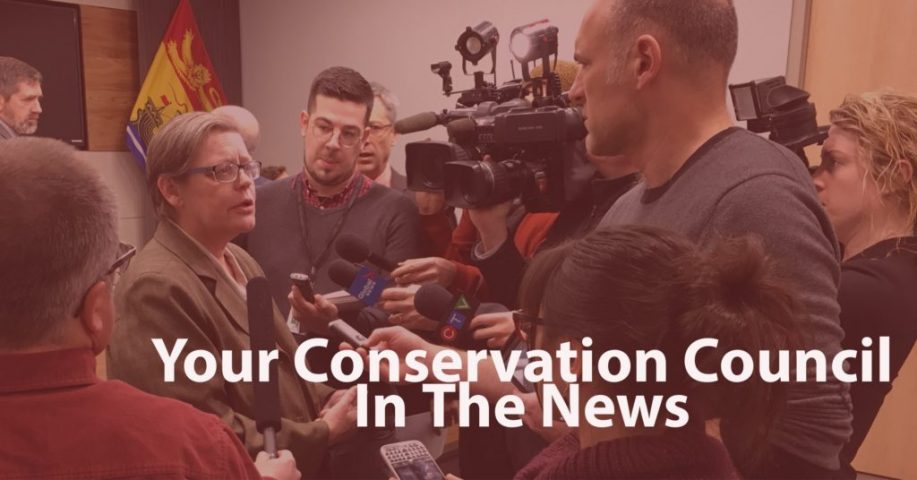Our Executive Director, Lois Corbett, is questioning the decision to put the top civil servant responsible for developing forestry and energy policies also in charge of the environmental rules that govern those sectors, and says now is not the time to have fewer people working on critical environmental issues like water protection and climate change.
Earlier this month, CBC New Brunswick reported that Tom MacFarlane, the deputy minister at the Department of Natural Resources and Energy Development, was also recently appointed as the deputy minister for the Department of Environment and Local Government.
Corbett told CBC in an article published June 5 that she has a lot of respect for MacFarlane, who she said is very competent and brings a breadth of experience after a lifetime in the civil service.
But she said, “with one hat on as energy and resource development deputy, he has a certain economic agenda to fulfill, but as environment deputy he has to protect water, first of all, and clean air, and natural systems. I don’t understand, no matter how wide the beam is, how you can walk that beam.”
Corbett spoke to CBC Information Morning Fredericton host Terry Seguin about the issue on June 17. Listen to the full interview here.
In that discussion, Corbett offered two examples of areas where conflict would arise. The planned phase out of coal-fired electricity by 2030 would have MacFarlene advocating for the shut down and transition of the Belledune Generating Station as environment deputy, meanwhile he could be negotiating an extension of the coal plant as the natural resources deputy.
The same “stickiness” will happen soon in the forestry file, where the Department of Natural Resources approves large clearcuts and herbicide spraying plans from big companies, meanwhile the department of environment is responsible for approving the permits to use herbicides in our woods.
“All New Brunswickers have come to expect to have officials at the Department of Environment stand up and ensure that our wetlands are preserved, that buffer zones along streams and rivers are protected, that our coastal communities thrive, and that we reduce carbon pollution because we’re in a climate crisis. Job No. 1 is protecting the environment, so you can see where the conflict is,” Corbett said.
She noted that MacFarlane was appointed as environment deputy on an interim basis and she expects a permanent official will be named soon.
While acknowledging that the global pandemic has been the rightful priority of provincial government this year, Corbett said “there are things that are overdue (on environmental action from government). For example, how are we going to reach the targets in our transition to a low carbon economy by 2030, where are the action plans for adaptation? Where is the report on how to protect ourselves from flooding on the St. John River? And, lastly, there’s been very little progress made on the development of all the action items in the Water Protection Strategy.
So there is a lot of work to get done and I think we can make a strong case that we need more people to do that work, not fewer.”

